Georgian opposition fears Saakashvili could be next after Navalny's death
Navalny and Saakashvili
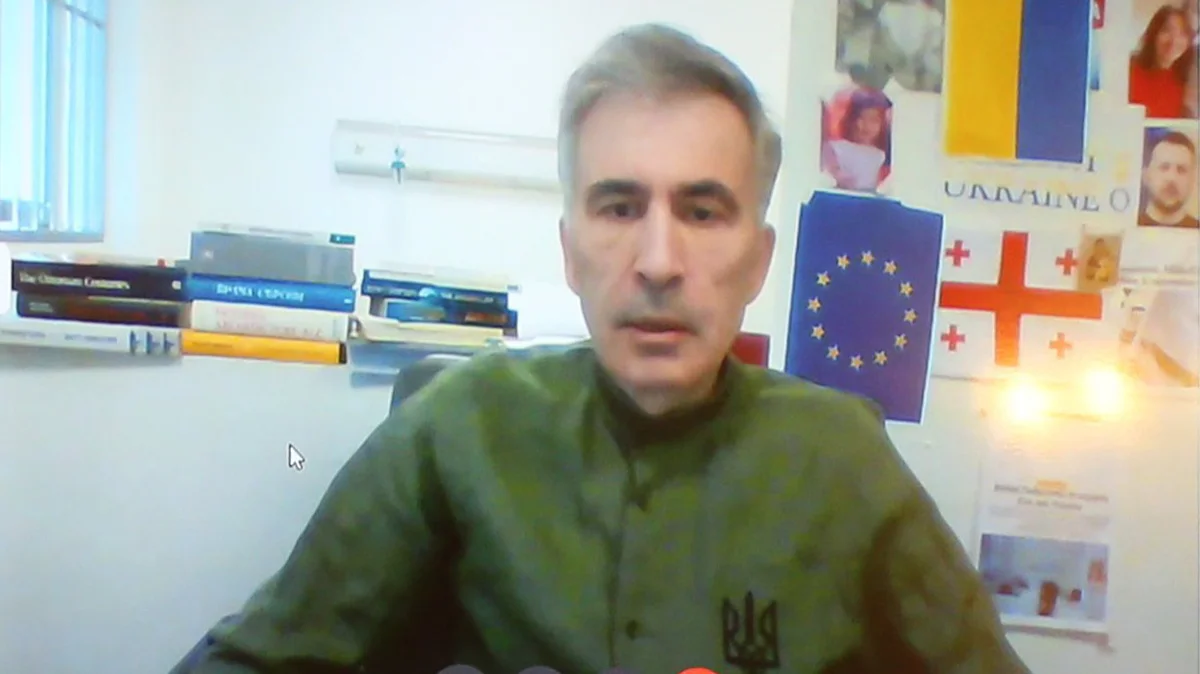
The news of Alexei Navalny’s death quickly became one of the most widely discussed topics in the Georgian media. Simultaneously, a concerning discussion emerged in Georgia: opposition politicians in the media, along with ordinary users in the local sphere of social networks, raised the question: Could the next case of a suspicious death in prison occur in Tbilisi, involving Saakashvili?
Material from “New Newspaper Europe”
The mentioned individuals
In January 2021, Alexey Navalny made an unexpected return to Russia from Germany and was promptly imprisoned. This occurred just a few months after the return and subsequent arrest of Saakashvili in Georgia in the fall of 2020. Since then, these politicians have frequently been compared. However, it was Putin who initially drew this comparison — as early as 2017, he believed that both Saakashvili and Navalny posed a potential threat to destabilize the country.
“Regarding the individuals you mentioned… Do you want them to be like Saakashvili, rallying in the streets as seen in Ukraine? The ones you referred to are essentially Saakashvili, but in the Russian context. Are you advocating for them to destabilize the country? I’m confident that the vast majority of Russian citizens do not desire this and will not permit it,” stated Putin in response to Ksenia Sobchak’s inquiry about the criteria for candidate eligibility in elections. Navalny’s name was not explicitly mentioned.
Furthermore, there is another reference: “We do not wish for someone like Saakashvili to present us with another, second, third, or fifth option. Russia requires individuals with a constructive agenda, and the Russian political landscape does not require figures akin to the former president of Georgia, Mikhail Saakashvili.” Putin made this statement during an interview with an Austrian TV channel, once again alluding to Navalny.
As a result, despite lacking personal acquaintance, friendship, or a shared political platform, Navalny and Saakashvili grew closer, displaying a camaraderie akin to loyal comrades.
Last spring, on April 13th, Navalny, from the Vladimir colony, voiced his support for Saakashvili, acknowledging that while Saakashvili may “weakly represent Georgian politics,” he commended him as “a man and a Christian.”
Navalny’s message remained characteristically clear and relevant: he urged skepticism towards Saakashvili’s actions, cautioning against falling for his theatrics.
“Believe me, imprisonment drains the health of individuals rapidly. Releasing him for medical treatment under a suspended sentence or a similar arrangement that upholds legal obligations while preserving dignity would be the most appropriate course of action,” Navalny advised. He emphasized that the imprisonment and mistreatment of the former president were appalling and devoid of compassion. Navalny highlighted the detrimental effects on European relations, development prospects, and morale, contributing to a pervasive sense of malevolence in the country. He also appealed for a more humane approach from the government compared to its adversaries.
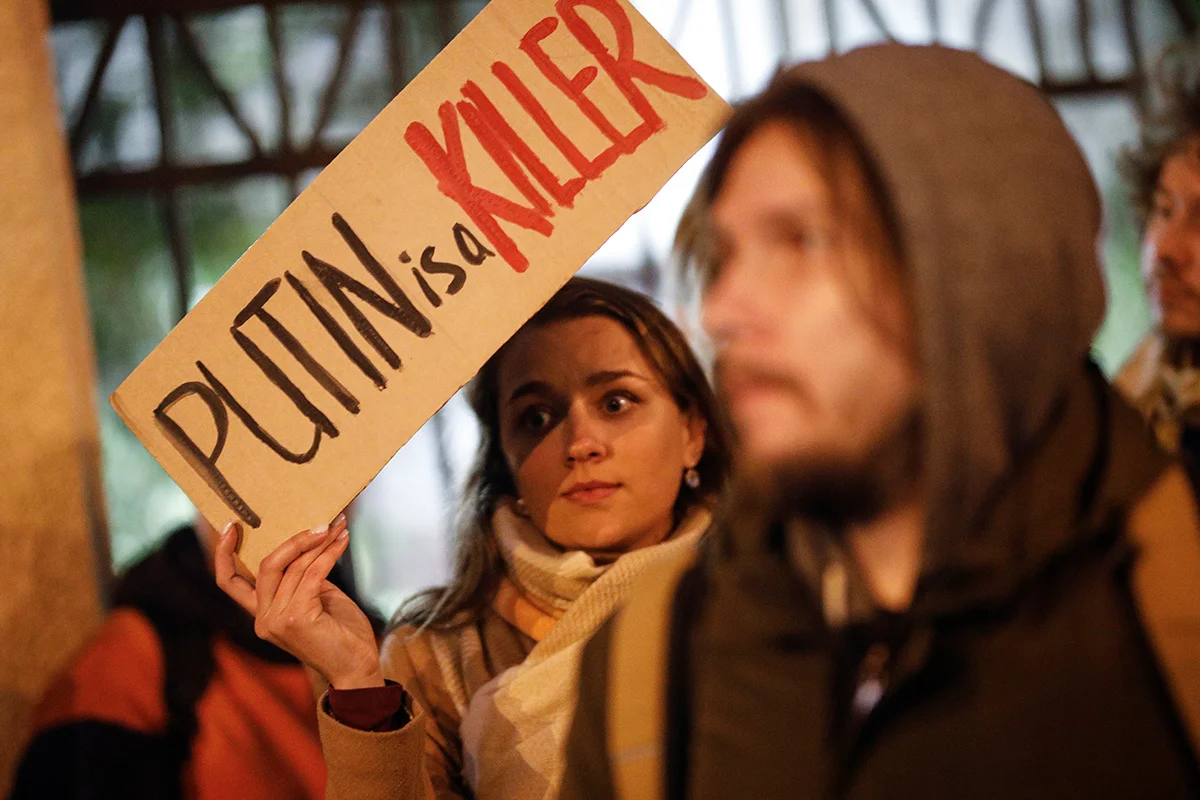
Saakashvili also understood the vulnerabilities of the Kremlin and stated that he views Navalny as the future president of what remains of Russia. Additionally, he expressed readiness to collaborate with him:
“There are two points that unite me with Alexey Navalny, whom I believe will become the future president of what will soon be left of Russia: our mutual uncompromising stance against corruption and our shared status as the primary adversaries of Vladimir Putin. I wish Alexey survival, freedom, and the opportunity to lead people.”
Seven years ago, Saakashvili elucidated why Putin could not impeach Navalny.
“Putin has vivid imaginings. He envisions a scenario where he once again imprisons Navalny, only to witness a large crowd of sympathetic young people converging on the center of Moscow. They bravely confront his special forces, seize Navalny with their bare hands, and march him directly to the Kremlin. His hysteria sets in as he envisions a moment when the police fail to resist, overwhelmed by the sheer number of people, allowing Navalny to be swept away,” explained Saakashvili in an interview with Deutsche Welle.
Later, Saakashvili tactfully expressed his disagreements with Navalny, describing him as “a complex figure” who once dabbled in nationalism but is undoubtedly a figure of the future, given his strong youth following. Saakashvili was confident that if Navalny were to lead Russia, it would become “a modern, civilized country,” emphasizing that a normal country cannot be an imperial power that annexes and assimilates foreign territories.
Finally, Saakashvili’s last message, delivered on the day of Navalny’s passing, underscores the Georgian politician’s lack of doubt regarding the reasons for Navalny’s death, while also hinting at his own concerns.
Questions in Munich
One of those who drew parallels between Saakashvili and Navalny was Polish Foreign Minister Radoslaw Sikorski.
Ahead of the Munich Conference on European Security, he took part in a panel alongside the President of Georgia, Salome Zurabishvili. During the forum, Sikorski directly appealed to Saakashvili to grant her a pardon.
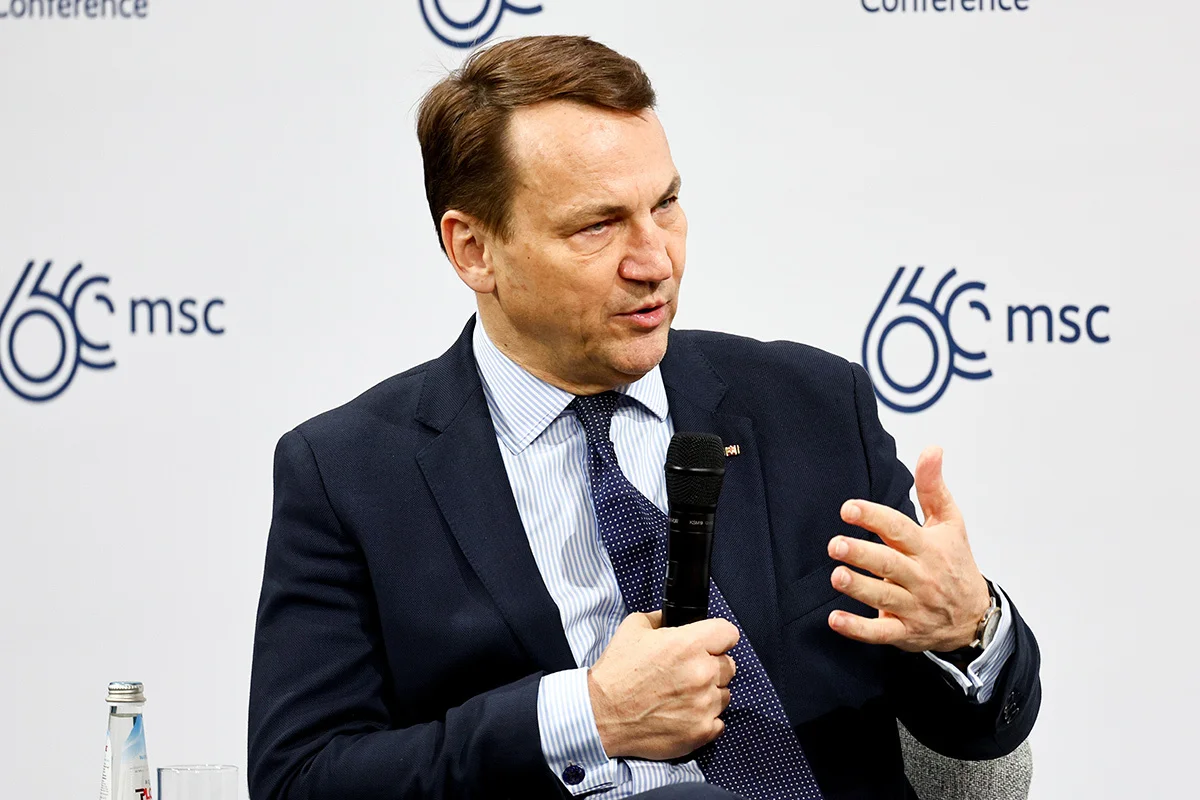
“I am the first defense minister of Poland to visit Georgia, and as a friend of Georgia, I must say: Madam president, we remember that your predecessor, president Saakashvili, participated in this conference, and for many of us, he symbolizes modernization. While we respect the rule of law in your country, I believe that the treatment of Mikhail Saakashvili is a very important issue. It is crucial that we afford him fair treatment, and you, of course, have the ability to contribute to his release, which would be warmly welcomed by all supporters of Georgia,” stated Sikorsky.
Zurabishvili responded with a diplomatic smile but did not directly address Sikorsky’s statement. Meanwhile, during the Munich conference, she emphasized that joining the EU is an indisputable goal for Georgia, with Russia being the primary threat to the country’s security.
The international press also showed interest in Saakashvili’s fate in light of Navalny’s death at the Munich conference.
For instance, a journalist from Bloomberg, an American media outlet, asked Zurabishvili her thoughts on “the death of Alexei Navalny and the presence of Saakashvili in Georgia, who is also in prison in a serious condition.”
Even as the question was posed, the president began to shake her head in disagreement and stated that such comparisons were inappropriate.
“There is no justification for drawing such a parallel, particularly in this context. I want to reiterate: Georgia is not Russia. If Navalny’s death is confirmed (his wife was recently present at the conference), it would be devastating and tragic for human rights and democracy worldwide. For Russia, it would only serve to reinforce the current regime. However, I believe this is a tragedy for all of us.”
Prior to this, Zurabishvili had remarked that she found it no coincidence that Navalny’s death was reported just before the start of the Munich conference:
“For Russia, it’s typical to attempt psychological manipulation, showing that Russia can act however it pleases, wherever it pleases. I see this as a message directed at the Munich conference.”
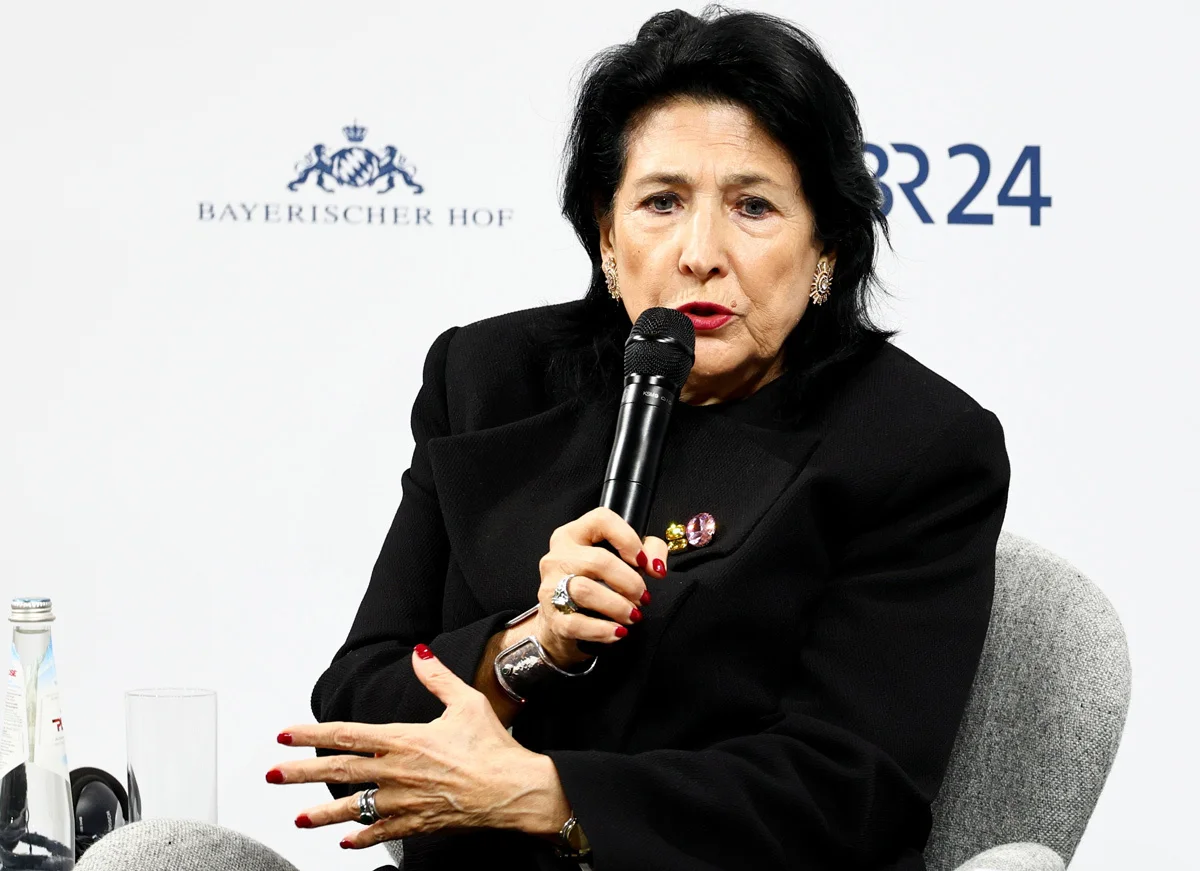
On February 16, Zurabishvili extended her condolences to Navalny’s family “and to those who carry on his struggle for democracy in Russia.”
She described his passing as “a tragedy for all champions of democracy and human rights.” This message stands as the most direct, clear, and to date, the only official statement from the authorities of Georgia.
Will he show mercy or not?
Exactly a year ago, in February 2023, the European Parliament passed a resolution nearly openly referring to Saakashvili as a political prisoner, stating that “oligarch Ivanishvili” had detained Saakashvili out of “personal vendetta.” The ruling party showed no concern and dismissed such a resolution as “corruption” within the European Parliament.
The largest opposition party, the United National Movement, recently announced its intention to gather signatures calling for Saakashvili’s release, aiming to submit a petition to Zurabishvili on March 1st.
In Tbilisi, signatures are already being collected at the Saakashvili Presidential Library, and over the next two weeks, the process will commence in various regions of Georgia.
According to a survey conducted by Edison Research in December 2023, commissioned by the Formula TV channel, 57% of the population believes that Georgian president Salome Zurabishvili should exercise her constitutional right and pardon Mikheil Saakashvili. However, there is a significant portion of the population—43%—who oppose this idea.
These statistics are also reflected in Zurabishvili’s stance. Initially, her response to inquiries about a potential pardon for Saakashvili, immediately following his arrest, was a resolute “No and never.” However, her tone softened slightly over time, stating that she had “not ruled out” the possibility of a pardon for Saakashvili but preferred not to comment on the matter prematurely. According to political analysts, this shift is attributed to Georgia’s European aspirations and the pressure Zurabishvili faces from Western allies.
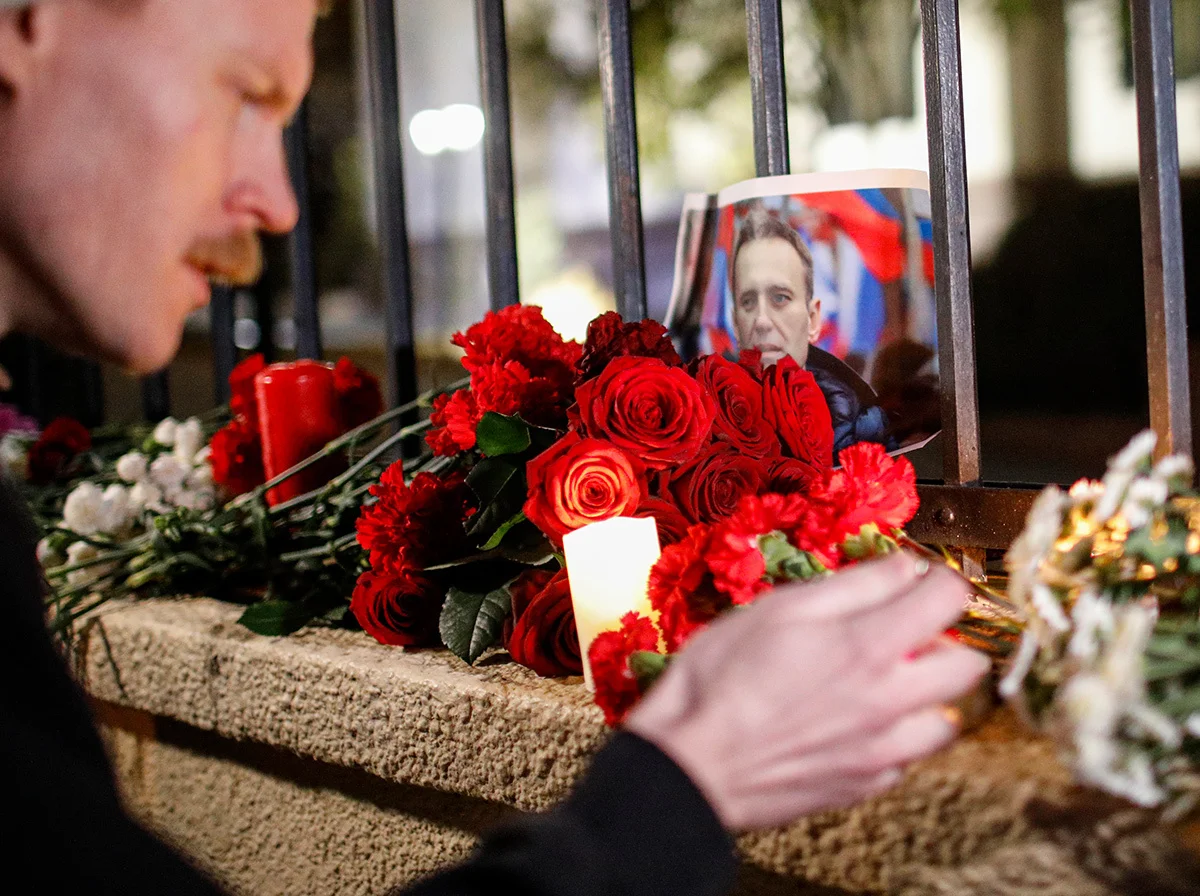
Among the arguments against, there is still the fact that even if Saakashvili is pardoned for cases in which a sentence has already been handed down, he will still be incarcerated, as trials on several other charges are pending.
Furthermore, according to individuals familiar with Zurabishvili’s stance, she is apprehensive about the polarization of society and the potential loss of support from those voters who oppose the idea of a pardon.
It is possible that these votes will be needed if Zurabishvili decides to establish her own party after completing her presidential term next year.
The founder of the liberal Republican Party, David Berdzenishvili, asserts that the release of Saakashvili hinges not on the president’s will, but on two other factors: either the opposition must triumph in the elections and assume power, or the West’s stance on Saakashvili’s case must toughen.
“I concur with Zurabishvili that Georgia is distinct from Russia. In Georgia, individuals aren’t seized on the streets for expressing condolences… What’s unfolding in Russia is a ‘catastrophe,’ but here it’s merely ‘bad,'” Berdzenishvili remarks. “The sole avenue to liberate Saakashvili today lies in Western intervention… When the Polish Foreign Minister inquires about Saakashvili, it’s one matter, but the Germans and French, those who wield significant influence in the EU, have yet to raise the issue… I deem it most advantageous to secure Saakashvili’s release through Western efforts; otherwise, I see no viable means for his release until the opposition prevails in the Georgian elections.”
What is the current condition of Saakashvili?
After enduring lengthy hunger strikes in prison, Saakashvili was transferred in May 2022 from a prison in the city of Rustavi to the Vivamed clinic in the capital due to the risk of succumbing to exhaustion and related ailments (he weighed 67 kg at a height of 195 cm, indicating a loss of nearly 60 kg). His health remained precarious for an extended period – Saakashvili only began to regain strength in the summer of 2023, asserting that he was determined “not to perish,” but rather to live “for the sake of Georgia and Ukraine,” and witness the “ultimate demise of the Russian Empire.”
Georgian authorities often emphasize that Saakashvili is not confined to a typical prison cell, but rather to a “two-room ward,” suggesting there are no grounds for grievances against them. However, the European Committee for the Prevention of Torture and Inhuman or Degrading Treatment (CPT) contends that Saakashvili is subjected to “oppressive and degrading” conditions that impede his recovery.
On January 18, a committee under the Council of Europe published a report by its specialists following a visit to the Vivamed clinic, where Saakashvili is being detained.
Overall, the conditions in the clinic were deemed adequate for a medical facility. The experts noted that the clinic featured “wide windows with a pleasant view,” although this was not the case in Saakashvili’s room, where the windows were described as “barely opening” and featured “frosted glass.” Following the visit by the CPT, the clinic reported that the frosted glass had been replaced.
Saakashvili enjoys certain privileges at the clinic, including furnished rooms and access to television and media. However, he does not spend any time outdoors.
The European Committee also has concerns regarding the penitentiary system in general—Saakashvili is not an ordinary patient but a prisoner. On the fifth floor (where “Patient C” was located), the atmosphere was described as “depressing” due to the presence of security cameras. Saakashvili’s room has three cameras installed, meaning he is constantly under surveillance everywhere except in the toilet and shower. For instance, one of the cameras continuously films him while he is in bed. “This not only violates the patient’s privacy but also shows a lack of respect for his human dignity. Clearly, the purpose of the surveillance had nothing to do with the therapeutic process. Monitoring of the patient was primarily conducted by prison service personnel rather than medical staff,” the CPT report stated.
Furthermore, the committee denounced public statements about the ex-president’s health condition made by clinic staff and officials without his consent as a “blatant violation” of medical confidentiality.
Despite the intense scrutiny from observers worldwide, the 56-year-old Saakashvili has managed to gain weight, reaching 77 kg, and has become so robust that he connects online to court hearings in his own case. He periodically addresses his supporters during these hearings, which has irked the authorities.
For instance, prior to his confirmation as the new Prime Minister of Georgia, Irakli Kobakhidze pointed out that the opposition had been consistently predicting Saakashvili’s imminent demise for two years. “They’ve been making these claims for two years. And yet, here he is, actively engaging in politics today. You can judge for yourself whether his condition has improved or not.”
Kobakhidze’s observation proved to be accurate: recently, during one of the court sessions, Saakashvili agreed to the cooperation of his National Movement party, the largest in the opposition, with Salome Zurabishvili within the framework of the “Platform of Unity for Europe” established by her.
While Zurabishvili has been frequently meeting with representatives of the opposition and civil society recently, Saakashvili is urging her to mobilize people to take to the streets.
“Rustaveli Avenue can be filled if we all unite. If the president initiates this, we will stand behind it,” Saakashvili stated.
Saakashvili envisions himself leading the Political Activity Committee of the National Movement in preparation for the parliamentary elections this fall. He also aims to combat potential electoral fraud, alleging that the authorities plan to manipulate up to 500,000 immigrant votes by utilizing counterfeit IDs in electronic elections.
“I am pleased to announce the establishment of a voter protection school, scheduled to launch within the next month and a half. We will train thousands of individuals to recognize and counteract these schemes,” Saakashvili pledged.
Addressing potential inquiries regarding his Ukrainian citizenship, Saakashvili reminded that Bidzina Ivanishvili participated in the 2012 elections despite being a citizen of France: “Of course, I maintain my citizenship of Ukraine. I would like to remind you that Georgia has seen such a precedent: Bidzina Ivanishvili was elected as a citizen of the EU.”
Navalny and Saakashvili


















